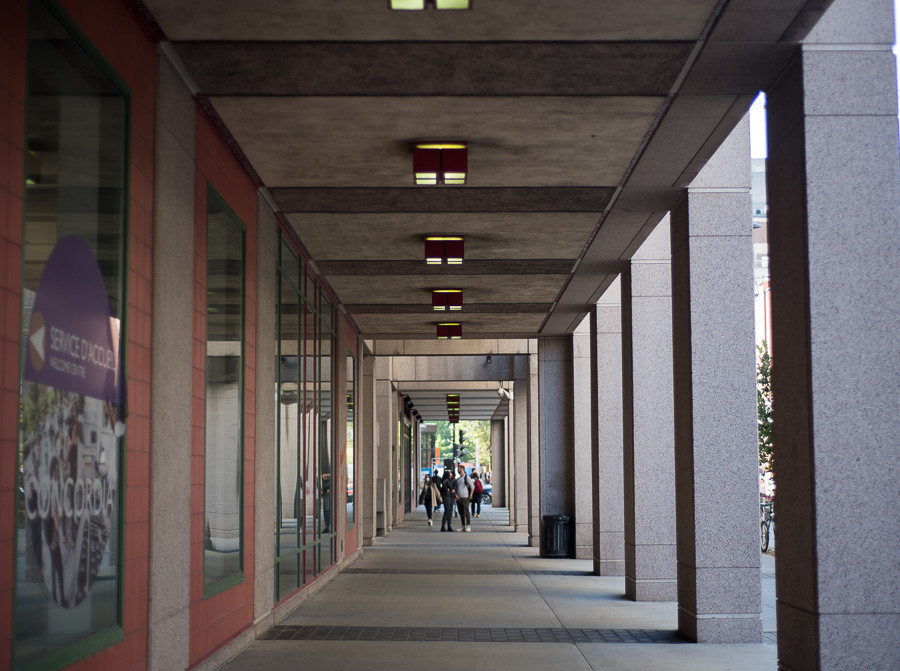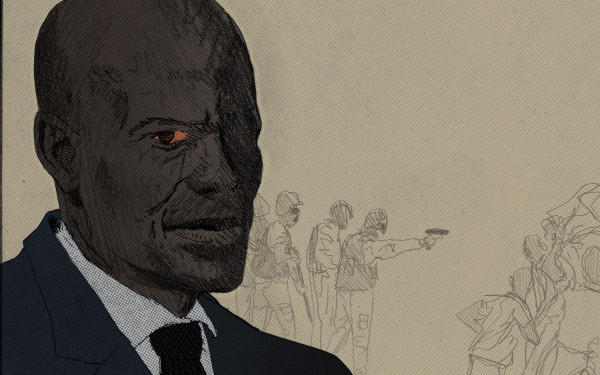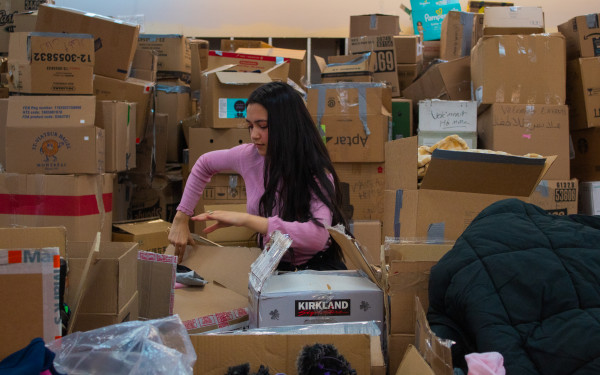Student-run relief initiative at Concordia aids earthquake survivors in Haiti
Tèt Ansanm offers relief as Haiti recovers from August’s 7.2 magnitude quake
The Haitian Students Association of Concordia has organized a Haiti relief initiative on campus, collecting material goods for those who suffered the 7.2 magnitude earthquake on Aug. 14.
Ever since its launch on Oct. 22, the Tèt Ansanm drive, meaning “together” in Creole, continues to accept donations with a drop box on campus available for those willing to donate. Members of HSAC are gathering hygiene packs, sanitary products, tents, bandages, first aid kits, medical supplies and much more for communities in need.
Following the news of the earthquake, Haitian-Canadians, groups in the Haitian diaspora, and organizations took action to provide immediate support to those affected by the disaster. Upon seeing this, HSAC was inspired to do the same.
“A lot of people were displaced, a lot of people no longer have their homes. Sending money is great but people who are in immediate distress, they need things right now," said Luiggi Elancy, president of HSAC, on the need for urgent supplies.
Haitian-Canadian student Raina Beaubrun, who lived through the 2010 Haiti earthquake, could relate her experiences to the latest. “I remember how destroyed Haiti was,” she said. “I was fortunate and lucky enough to have made it out, but some did not, and they had to relive that terror again 11 years later.”
Speaking on political instability and conflict in certain areas, she explained how this made providing direct relief difficult. “I’ve been able to take some money out of my pay to send to the friends and family out there, but obviously that is not enough,” she added.
Elancy emphasized the importance of donations, no matter how large or small.
"Everything helps. I feel like sometimes people can be embarrassed or feel bad that they can only donate one single item or whatever the case may be. For all we know, this one single item can be a breakthrough for another person," Elancy added.
“A lot of people were displaced, a lot of people no longer have their homes. Sending money is great but people who are in immediate distress, they need things right now.” — Luiggi Elancy
Svens Telemaque, community outreach executive at HSAC, is spearheading the initiative, having recently come back from Haiti after organizing and supervising a shipment of material goods with Montreal’s Union United Church.
Telemaque was responsible for the logistics and coordination of this previous drive that worked in collaboration with DESTA Black Youth Network, Église Le Refuge, Youth Stars Foundation, and several other businesses and organizations in Montreal.
The current HSAC initiative took inspiration from this project where plastic barrels were filled and shipped from Montreal to Haiti, with a shipping container entirely dedicated to sending aid.
Despite shipping costs, customs, duties and taxes, protests, and gas shortages in the country, more than 87 barrels were filled with goods, sailed, and delivered by truck through the oversight of Telemaque.
In coordination with Montreal based Rêve Anaïka Foundation, the Tèt Ansanm initiative will look to provide the same material aid to people, hospitals and clinics in areas such as the Petit-Trou-de-Nippes, Les Cayes, and L’Asile.
For their next project, Telemaque hopes to shift the focus from giving to breaking the cycle of poverty in the country.
Telemaque would like to see Concordia and other institutions utilize their resources and knowledge to provide opportunities to young Haitians. He emphasized our duty as global citizens to stimulate the entrepreneurial spirit of nations like Haiti and empower them.
“We don’t want people to be dependent, we want to create interdependence and ultimately independence completely,” he said. “Haiti is not the poorest country in the Western hemisphere, it is a country that is impoverished. There’s a lot of opportunities. [Haitians] are a very strong and beautiful people, Haiti is not just what is portrayed in the news.”


_600_832_s.png)




